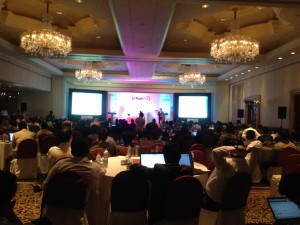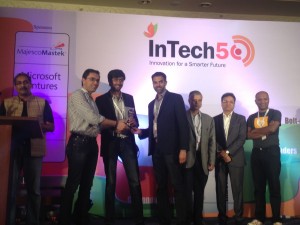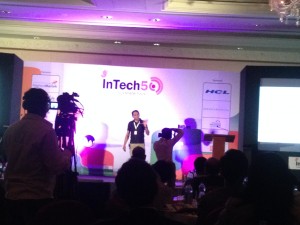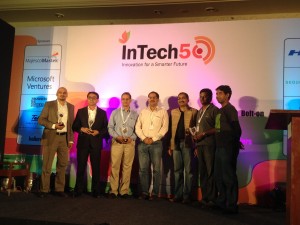ThinkInvestor is iSPIRT and ProductNation’s new initiative to serve as a catalyst between Venture Capital firms, Angels, Angel Networks and Entrepreneurs. It is to go beyond brochure ware and dig deeper into the whole life cycle of a typical investment; from introductions, funding, styles of on-going engagement, to exits. And in the process, capture their views on global and local trends, and the entrepreneurial ecosystem in India. This interview is done with inputs from Shashi Bhagnari.
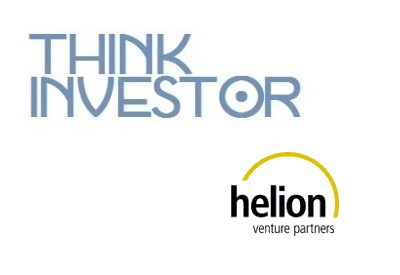 Helion Venture Partners is a $600 million venture fund focused on India with offices in Bangalore and Delhi. The company is an early to mid-stage investor in Indian startups in sectors such as Enterprise software, Internet, Mobile, Outsourcing, Retail, Education and Financial Services. In a conversation with iSPIRT, Helion’s Alok Goyal, Partner, talks about the company’s funding strategy, evaluating projects and making the right investments.
Helion Venture Partners is a $600 million venture fund focused on India with offices in Bangalore and Delhi. The company is an early to mid-stage investor in Indian startups in sectors such as Enterprise software, Internet, Mobile, Outsourcing, Retail, Education and Financial Services. In a conversation with iSPIRT, Helion’s Alok Goyal, Partner, talks about the company’s funding strategy, evaluating projects and making the right investments.
Tell us about the company’s background. What is its focus? What is your current fund? What is it looking at?
We formed the firm in 2006 with four founders that included Ashish Gupta, Sanjeev Aggarwal, Kanwaljit Singh and Rahul Chandra. Besides our team of analysts, our CFO doubles up as an operating partner for finance. We also have an HR advisor who works closely with our portfolio companies. We recently got someone in Product Management from Google to help portfolio companies. We are now a group of 15 people and have our offices in Gurgaon and Bangalore in India.
We focus our investments on early to mid-stage ventures, investing in technology-powered and consumer service businesses in sectors like Outsourcing, Internet, Mobile, Technology Products, Retail Services, Healthcare, Education and Financial Services. We have done about 60 investments so far.
In our current fund, we have raised about $250 million. The focus of this new fund will be divided between technology side and tech-enabled consumer investments. We will continue to look at Internet services like Makemytrip where we invested earlier, taxi services like TaxiForSure etc.
What’s your strategy on verticals? How do you characterize them?
Within e-commerce, we are bullish on Internet-only brands and marketplaces. For example, YepMe–a Web only brand focused on tier two and tier three markets. We have also invested in a venture called ShopClues which is an eCommerce marketplace.
Within consumer services, we have invested in consumer facing travel ventures like TaxiForSure. We have also made an investment in a company that makes planning travel experiences much easier. We have also funded a housing and real estate venture, Housing.com.
What stage of investment are you most interested in? Seed funding or later stage investments?
We are mostly the first or one of the first institutional investors in the company. Our sweet spot would be Series A or Series B funding. I would imagine 70 to 80 percent of our investments are in Series A. We invest between $10 to 20 million over the lifetime of an asset.
Any interesting investments you have made recently?
We had been looking at investments in the healthcare sector for a while now. We have recently invested in Denty’s, a chain of dental care units. This Hyderabad based company focuses on dentures, jaw replacement and other high end dental care treatments. We have also invested in the area of enterprise mobility, in a company called Rapid Value that provides services in the area of mobilization of enterprise applications. Another recent investment is Linguanext, which has created a unique technology for language translation. It allows Independent Software Vendors (ISVs) and enterprises to translate any application from one language to another without any changes in the application itself.
How do entrepreneurs get in touch with you? Is there a defined process they need to follow?

Entrepreneurs are at the heart of the venture capital eco-system. It is as much or more of our job to find entrepreneurs than they reaching out to us. In fact, we use a lot of our bandwidth to get to reach out to entrepreneurs.
Entrepreneurs are most welcome to reach out to us directly. There are two ways entrepreneurs typically get in touch. First is through our personal network. Second way is through bankers. We also like to make ourselves visible in forums and events so that entrepreneurs can reach out to us and we can reach out to them.
We also have a strong outbound program through a team of analysts.
What is your due diligence process? Is it specific to all?
We view around 1500+ business plans each year. The process is similar for most. Usually the first meeting takes place with one of our analysts, unless it comes from personal contacts. Different analysts focus on different areas and they all gain a good idea after the first meeting, which is then followed up with another meeting with one of the partner(s), to understand the business better.
Due diligence for us is more Market Diligence. We also do primary research, secondary research and make reference checks. After we are through with the entire due diligence, we invite the entrepreneurs to present their business plan to the whole team. If the partnership is positive, we issue a term sheet after which financial/legal due diligence cycle along with documentation is completed.
The entire end-to-end process is completed within a month and a half typically.
How do you interact with your entrepreneurs? Is there a process outlined for this?
Investment is not only about money. We have developed reasonably strong relationships with our entrepreneurs which begins when we start the process of due diligence. We have both formal and informal interactions on a periodic basis.
In the early stages, face-to-face meetings are held every quarter, in addition to monthly calls. But outside of that, we do not interfere in their work at an operational level. But entrepreneurs reach out to us whenever they need help. For instance, if they need clarity on product direction or to connect with other prospects, they contact us. Those interactions are in fact, quite regular. However, I personally find myself being in touch with them on a very regular basis.
Do you have any avenues where you meet your portfolio company CEOs informally during the year?
Yes, we are doing this once a year. We have also started to form groups now. For instance one group that focuses on product management can share tips with portfolio companies in that area. We also reach out to our portfolio companies through webinars.
Tell us about your recent exits? What do you think of the climate for exits in India like?
We are just an eight years old entity, so there have not been too many exits. Our first was an IPO exit from MakeMyTrip when they went public. We also exited redBus when it was acquired by Naspers. Then we got out of Amba Research. We are hopeful that the market climate in the next few years will get a lot better for favorable exits.
What excites you about entrepreneurs these days, and what is it that you like to see in them?
In all my discussions there is a general belief that the quality of entrepreneurs has gone up significantly. We are also seeing a whole class of entrepreneurs moving back from the US. We are seeing a generation of entrepreneurs starting their second ventures now. Their scale and thinking is different, very bold.
What we’d like to see is stronger talent in Product Management. It is relatively more difficult in India compared to a place like the Bay Area. We are also not seeing as many deep technology assets. What we are seeing are more applications based and light IP based businesses from India. Over a period of time, I have no doubt that India will create more deeper technology companies as well.
What advice would you like to give young guys who want to start a new venture?
You should ask yourselves if you have the entrepreneur inside you or not. If you are over analyzing, you are probably not. An entrepreneur has to be “foolish” enough to purse the dream besides being passionate about it. If you want to do something, don’t over-analyze it. The important thing is the ability to take the plunge.
Entrepreneurship is not a solo sport; but a team sport. You need to find complementary capabilities in others. The bottom-line is that you should be able to pull together a team that has complimentary skills and the same passion to do it.
A startup is successful because it is focused. Defining that focus is important. Startups succeed because they choose a specific market segment or a specific problem or a specific customer set etc. and serve that market better than anyone else.
Lastly, it is important to be close to the market. You need to continuously listen, learn and act with agility. It is important to be able to iterate quickly.


